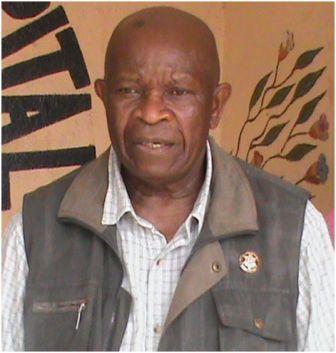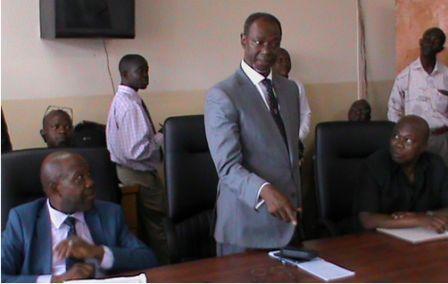On a medical mission in Sierra Leone
As a urologist in practice for 20 years in Lewiston, I have had a significant interest in treating conditions that cause incontinence. In the United States, most incontinence is related to the aging process, and can be successfully treated in nearly all cases.
Earlier this year, I went to a medical meeting where I learned of the West Africa Fistula Foundation clinic in Africa, under the direction of Dr. Darius Maggi, a retired ob-gyn from Texas.
The foundation called for volunteers to help in treating one of the most tragic causes for incontinence, called vesico-vaginal fistula, which results when a connection develops between the bladder and the birth canal.
I decided to visit the clinic in Bo, Sierra Leone, and help out for the month of June.
Sierra Leone is the second poorest country in the world, with one the highest childhood mortality rates and lowest life-expectancy. Childhood deaths happen in childbirth, by infections (particularly typhoid and malaria), and by injuries. Sierra Leone lacks a health care system in any sense of the word. Despite the crushing poverty, patients were happy and overwhelmingly grateful for our medical care.
In Bo, VVF cases were common, and were all caused by prolonged, obstructed birth, something that has been effectively prevented in America once proper C-section was developed in the 1850s.
Bo is a city of 175,000 in a province of 850,000 people, where there are very few doctors, and no C-sections. The typical VVF patient is a young woman of age 19 having her first baby. All cases result with the baby stillborn after suffering labor that may last up to two weeks.
The clinic patients, these young girls, may travel from small villages hundreds of miles away, even from surrounding countries that also have no significant medical care. The social fabric in village life causes such incontinent woman to become ostracized. They are often divorced, and subject to terrible suffering and humiliation. Domestic abuse, depression, and suicide are not uncommon in women with this condition.
For those lucky enough to arrive at the West Africa Fistula Foundation clinic, they often are malnourished and anemic. Despite their medical problems, they quickly find unexpected solace when they learn, often for the first time, that more than 50 other women there have the same problem.
Most did not learn of the clinic for many years, some for decades. All care, including room and board, all hospital, surgical and anesthesia fees are paid for by the foundation, and are completely free for the patients.
After surgery, one particular patient who had been leaking for more than 40 years cried the day after her urine catheter came out because, for the first time in her memory, she had not wet the bed at night. The clinic’s excellent surgical cure rate is about 92 percent.
While they wait their turn to be operated, the patients help by caring for themselves. They cook, sew, clean and attend Christian and Muslim religious ceremonies. It was interesting to observe that many of the patients attended both services. While English is the official language in Sierra Leone, most speak Krio, a type of pidgin dialect.
One of the deficiencies I saw was the lack of teaching that could be occurring with these poor souls who are largely illiterate, as they wait for surgery. The clinic employs 25 people but, unfortunately, it lacks funds to hire any teachers.
I was particularly interested in what happened after successful surgery, upon patients’ return to their villages. Almost all are welcomed back with open arms. Generally, surgical cure of their incontinence is cause for celebration in the village. Most will remarry and, depending on the case, some are permitted to get pregnant again.
Through the years, patients are invited to work in the clinic. Some are paid, others serve on a volunteer basis. In addition to the patients, Dr. Maggi feeds and houses all of the staff, no matter what the employment status.
Dr. Maggi often stated that the best cure for fistulas is early C-section which would eliminate vesico-vaginal fistulas once and for all. He feels so strongly about bringing obstetrical and other medical care to this neglected corner of the world, that the West Africa Fistula Foundation is planning to open a hospital there.
As much as possible, it would be run to standards of care we find in the United States. Already, land is secured and funding for the actual hospital is being solicited. I was told they have received contributions amounting to about one-third of the total cost, but more is always needed.
If the hospital opens, I will plan to go back from time-to-time to help out.
Dr. Robert Kester, of Auburn, is a urologist who retired after 20 of practice in Lewiston. Currently, he is developing his skill as a portrait sculptor.
The volunteer medical staff at the West Africa Fistula Foundation in Bo, Sierra Leone include medical director Dr. Darius Maggi, third from left, holding baby Darius, named in his honor, and Dr. Robert Kester, second from right. Others are not identified.
By Robert Kester, MD, credit Lewiston Sun Journal
Stay with Sierra Express Media, for your trusted place in news!
© 2011, https:. All rights reserved.






